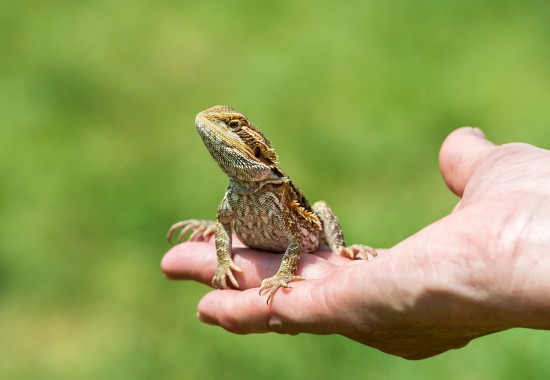
Ever wonder why so many pets are becoming ill, or why so many vets prescribe one drug after another or why pet health insurance has become such a big business?
The short answer – Big Pharma’s previous campaigns finally paid off – veterinary medicine is under its big fat thumb. The vet schools were infiltrated and students are trained to manage and treat diseases via drugs, rather than cure and prevent them. The very same principles ruling conventional medicine for humans now applies to our pets. They have become vehicles to generate profits – we spend billions upon billions of dollars annually on medicine, surgeries, and supplies for them.
Veterinarians like other doctors in the past were more concerned about their patient’s health rather than being paid. However, treating animals with pharmaceuticals along with selling various pet products has become a lucrative business that is almost as expensive as conventional medical practices for humans today. It is no wonder that pet health insurance has grown in popularity within the last decade, especially considering the outrageous veterinarian expenses.
Whether we realize this or not, medical malpractice is not just limited to humans – many healthy pets die from improper veterinarian care all the time. What many of us fail to recognize is we are essentially poisoning our pets by overdosing them with vaccines and medications. Case in point, the alleged textbook Bible for veterinarians “Current Veterinary Therapy” written by world renowned Dr. Robert Kirk contains an article concerning annual vaccinations that clearly states,
“The practice of annual vaccinations lacks scientific validity or verification. There is no immunological requirement for annual vaccinations. The practice of annual vaccinations should be considered of questionable efficacy unless it is used as a mechanism to provide an annual physical examination or is required by law.”
It is quite common for healthy pets, especially the older ones to suddenly become ill and die within a matter of weeks of receiving any given vaccine. Not to mention, the size of an animal has no bearing on dosage amounts - it’s one size fits all. Additionally, one would think that any intelligent person would raise questions about administering a medication to a loved one that is strong enough to kill a flea, tick or worm. However, most of us do not even think to discuss the possible side effects of anything prescribed for our pet by our vet. Nor do the majorities of veterinarians openly disclose the facts concerning how these poisonous vaccines and drugs can harm our pets.
So why do we cart our pets to our veterinarian on a regular basis to get the various vaccines and booster shots? Are we placing entirely too much faith and trust in our veterinarian’s pharmaceutical business practices? Is supporting their guaranteed repeat business worth risking our pet’s life?
Furthermore, commercial processed pet food is another area that needs our attention. The majority of pet foods sold at stores or a vet’s office is mostly junk food containing ingredients unfit for human consumption with little nutritional value whatsoever. The food is designed to create some sort of chronic illness that will usually require a visit to a vet to get some sort of drug treatment for our pet at some point.
Far too many of us remain completely unaware of the facts surrounding the pet food industry. This industry is a multi-billion dollar business dominated by a few corporations that also play an integral role in providing animal nutrition training to the veterinary profession. There are very few government regulations in place, which means these corporations are essentially self-regulated and free to do whatever they want. Therefore, using the cheapest ingredients allowed along with performing minimal feeding trials is how this industry profits. Many pet food labels claim the food is nutritionally balanced, but what does this really mean, especially when the source of protein can be anything? Meat by-products are one source of protein that is common in a large percentage of commercial pet food. This toxic material can come from diseased or contaminated animals from slaughterhouses, road kill or euthanized cats and dogs. Artificial flavors are another common ingredient, which are manufactured chemicals that do not support our pet’s health in any way. Pet food recalls are occurring on a regular basis these days. So much so that the FDA launched an online pet food recall database for concerned pet owners in early 2010.
Bottom line, animals and humans share a similar anatomy that requires good quality food in order to remain healthy. The only difference is our pets cannot make their own food choices. They rely solely on their caretakers to make the proper selections for them, and if we do not then they suffer in silence until it becomes obvious that medical care is required.
In all my years of working with animals, I have learned that commercial processed pet food is a major contributing factor for many chronic illnesses and even premature death. Animals have taught me to keep things simple – sticking with the basics is essential for their care – good nutrition that includes fresh foods along with herbal and vitamin supplements is the cure for most all health conditions they face.
If we value our pet’s health then we must not rely on a veterinarian business, which our pets may or may not need in their lifetime. We must exercise some common sense and educate ourselves. We must limit the amount of pharmaceuticals they receive along with training ourselves to read the labels attached to any product concerning them. Unrecognized ingredients or ingredients that we cannot pronounce or would not use for our human family members should not be a choice blindly dispensed to our furry little four-legged family members.
 Dachshund Paralysis And How To Deal With It
Dachshund Paralysis And How To Deal With It
 Jack Russells And Cataracts
Jack Russells And Cataracts
 How To Pick Up And Handle Your Pet Lizard, And The Best Pet Lizards For Hands-on People
How To Pick Up And Handle Your Pet Lizard, And The Best Pet Lizards For Hands-on People
 Five Often Overlooked Financial Costs Of Cat Ownership
Five Often Overlooked Financial Costs Of Cat Ownership
 Beautiful Blue-eyed Cats
Beautiful Blue-eyed Cats
 5 Common Houseplants And Flowers That Are Most Toxic To Cats
5 Common Houseplants And Flowers That Are Most Toxic To Cats
 New Regulations Come Into Force For Dog Breeders In Wales
New Regulations C
New Regulations Come Into Force For Dog Breeders In Wales
New Regulations C
 Pair Bonded Dogs And What This Means
Pair Bonded Dogs
Pair Bonded Dogs And What This Means
Pair Bonded Dogs
 The Natural Behaviour Of Lizards
The Natural Behav
The Natural Behaviour Of Lizards
The Natural Behav
 Ten Common Dog Food Ingredients Explained
Ten Common Dog Fo
Ten Common Dog Food Ingredients Explained
Ten Common Dog Fo
 Who Else Wants A Easy Way To Teach Your Canine Tricks
Do you want your canine to perform tricks in front of fa
Who Else Wants A Easy Way To Teach Your Canine Tricks
Do you want your canine to perform tricks in front of fa
Copyright © 2005-2016 Pet Information All Rights Reserved
Contact us: www162date@outlook.com